- News
- Reviews
- Bikes
- Accessories
- Accessories - misc
- Computer mounts
- Bags
- Bar ends
- Bike bags & cases
- Bottle cages
- Bottles
- Cameras
- Car racks
- Child seats
- Computers
- Glasses
- GPS units
- Helmets
- Lights - front
- Lights - rear
- Lights - sets
- Locks
- Mirrors
- Mudguards
- Racks
- Pumps & CO2 inflators
- Puncture kits
- Reflectives
- Smart watches
- Stands and racks
- Trailers
- Clothing
- Components
- Bar tape & grips
- Bottom brackets
- Brake & gear cables
- Brake & STI levers
- Brake pads & spares
- Brakes
- Cassettes & freewheels
- Chains
- Chainsets & chainrings
- Derailleurs - front
- Derailleurs - rear
- Forks
- Gear levers & shifters
- Groupsets
- Handlebars & extensions
- Headsets
- Hubs
- Inner tubes
- Pedals
- Quick releases & skewers
- Saddles
- Seatposts
- Stems
- Wheels
- Tyres
- Health, fitness and nutrition
- Tools and workshop
- Miscellaneous
- Buyers Guides
- Features
- Forum
- Recommends
- Podcast
TECH NEWS
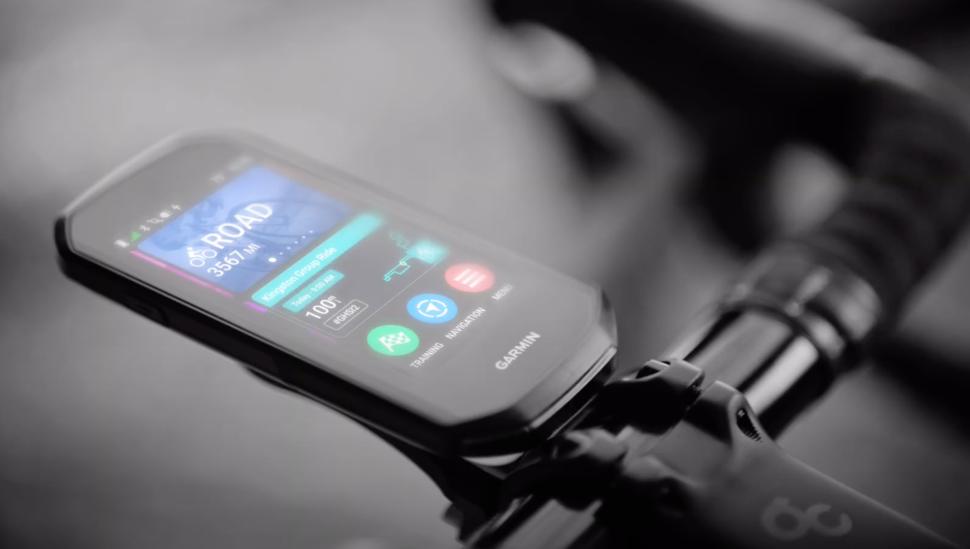 2024 Garmin Edge 1050
2024 Garmin Edge 1050Garmin claims new Edge 1050 is "brightest, smartest and most connected cycling computer ever"... but there's less battery life and no solar option
Garmin has launched its new top-of-the-range GPS cycling computer, the Edge 1050, which is said to have an improved display, built-in speaker, enhanced group ride features and the ability to make contactless payments. However, it has a shorter battery life compared to the Edge 1040 and doesn't offer a solar edition.
Rumours have been circulating recently about a new Garmin cycling computer, and today it has been launched as the Edge 1050, claiming to be the "brightest and smartest cycling computer ever". This is Garmin's first new cycling computer since the Edge 540 and Edge 840 were unveiled together more than a year ago.
Dan Bartel, Garmin Vice President of Global Consumer Sales, is quoted as saying: “We are excited to introduce our most capable, high-performing bike computer yet with the Edge 1050.
"Delivering an exceptional in-ride experience, superior navigation and community-focused features, our latest cycling computer is made to keep cyclists motivated - whether they’re planning a group ride with friends or a long, solo adventure."
The Edge 1050 features an updated design with a 3.5-inch wrap-around liquid crystal touchscreen display and angled casing, leaving little room for buttons around the sides, unlike the Garmin Edge 840.
Battery life
In 2022, Garmin introduced solar charging to the Edge range with the 1040 Solar, extending to more accessible versions like the 540 and 840 when they launched in the spring of 2023. However, the new Edge 1050 doesn't - or doesn't yet - incorporate this technology. Garmin provided some clarity on this: "The Edge 1040 Solar will exist next to the 1050 which has the brighter screen - so customers can choose if they prefer a brighter screen or solar/really long battery life". We can only speculate as to why not right now: perhaps solar charging wasn't popular or considered worth the extra money by Garmin fans.
Back to 'traditional' charging methods: Garmin says that the Edge 1050 features "a vivid colour display, enhanced group ride features, built-in speaker, and more - all without sacrificing battery life." Despite these advancements, the Edge 1050 offers up to 20 hours of battery life "in demanding use" and up to 60 hours in battery saver mode. In comparison, the non-solar Garmin Edge 1040 offers up to 35 hours of battery life in demanding use, and up to 70 hours in battery saver mode.
Incident detection alerts
The Edge 1050 introduces numerous new features aimed at "fostering a more cohesive cycling community".
Users can now receive road hazard alerts, such as warnings for potholes or fallen trees, reported by fellow cyclists. Additionally, in-ride messaging and leaderboards have been added to introduce a competitive element to rides.
These updates will also be available soon on the Edge 540, Edge 840 and Edge 1040 series cycling computers.
Contactless payments
Garmin has also introduced the Garmin Pay contactless payments feature to the Edge 1050, matching its recent smartwatches. This feature could make payments more convenient at the cafe stop without the need to rummage in your pockets, although paying for things with your bike computer might take some getting used to...
Built-in speaker and integrated bike bell
The Edge 1050 also features an integrated speaker that not only provides workout and navigation prompts, but also serves as a bike bell, alerting other road users of your presence. With front ends becoming more and more integrated and non-standard in their shape, the integrated bell feature seems like a win-win; although we haven't tested it out yet, but will be doing so in our upcoming full review of the Edge 1050.
On-device course creation
You can also create routes directly on the Edge 1050, as well as access routes suited to a specific ride or most travelled by other Garmin users. Cyclists can also use pin drop navigation to send a POI from Apple Maps and automatically receive navigation to that location.
Performance tools and insights
The Edge 1050 is equipped with training tools such as personalised Garmin training plans, real-time stamina insights, performance metrics such as VO2 max and training status, and features like ClimbPro for tackling climbs.
It's worth noting that several of these features demand the use of compatible smartphones and sensors, such as a power meter and/or heart rate monitor, which must be bought separately.
The Garmin Edge 1050 is available to buy now and costs £649.99, meaning it won't be making our cheap cycling computers buyer's guide any time soon. In comparison with other high-end bike computers launched recently, recent releases like the Coros Dura solar GPS bike computer, offering up to 120 hours of battery life, are available for £249. Another option is the Hammerhead Karoo 3, featuring a 3.2-inch display, priced at £450 for a similarly-sized unit.
Emily is our track and road racing specialist, having represented Great Britain at the World and European Track Championships. With a National Title up her sleeve, Emily has just completed her Master’s in Sports Psychology at Loughborough University where she raced for Elite Development Team, Loughborough Lightning.
Emily is our go-to for all things training and when not riding or racing bikes, you can find her online shopping or booking flights…the rest of the office is now considering painting their nails to see if that’s the secret to going fast…
Latest Comments
- Rendel Harris 27 min 43 sec ago
A brilliant line from a comedian friend of mine (may only be understood by older readers): "If you like a lot of chocolate on your biscuit, have a...
- Hirsute 55 min 29 sec ago
No driver involved https://www.gazette-news.co.uk/news/24728452.car-crash-station-way-colch...
- Simon E 1 hour 6 min ago
It will be worth the time invested, I'm sure. Hoping that you'll post a review of some kind.
- chrisonabike 1 hour 20 min ago
On the last that's also a problem of success in many ways and I don't think is fixable by "more of the same". Roads attract motoring - better...
- hawkinspeter 1 hour 33 min ago
The kind of common sense that associates global financial crises and recession with a need to cut back on libraries and allow unlimited banker...
- chrisonabike 1 hour 35 min ago
There you go, you had a chance to correct your tacit support for the cultural revolution (and you've been silent on the burning of the Library of...
- hawkinspeter 2 hours 46 min ago
To be charitable to the police (though I wonder why I should), they're acting on a specific complaint raised by the motorist and so are doing their...
- chrisonabike 4 hours 6 min ago
They almost never get to experience them... https://m.youtube.com/watch?v=ngifg--1eW4
- stonojnr 4 hours 15 min ago
its tricky because there are arguably hundreds, maybe even thousands of "problem areas" on any sportive route, that potentially could result in the...
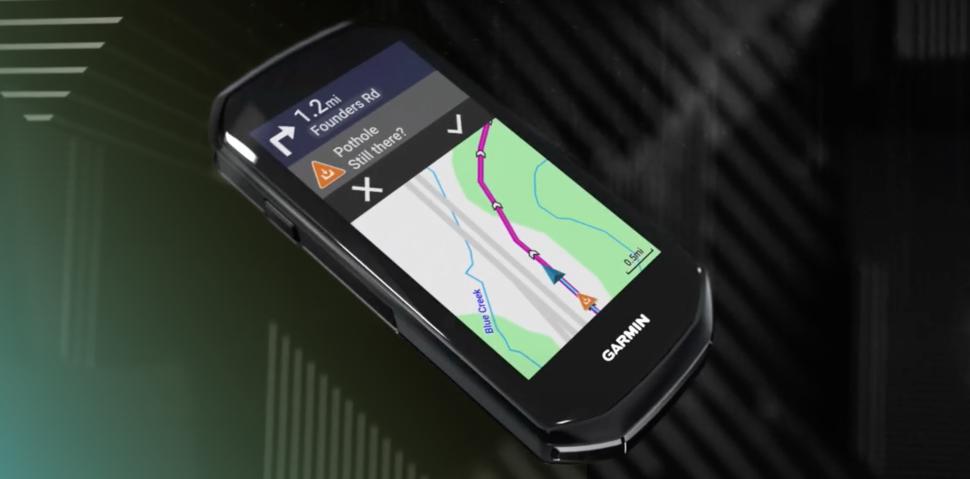
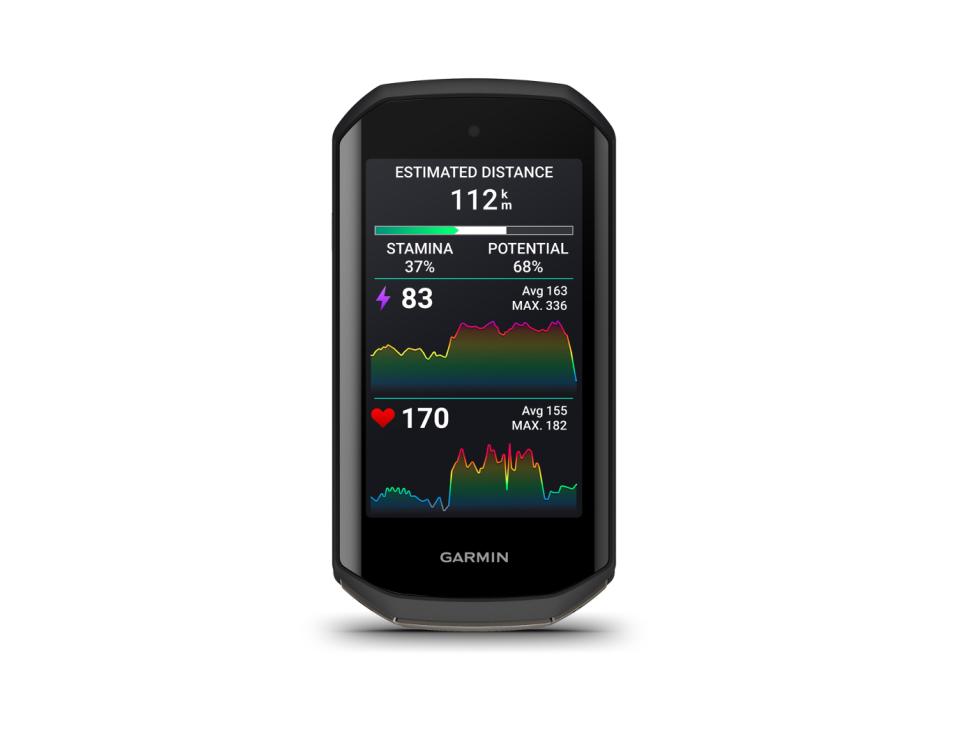
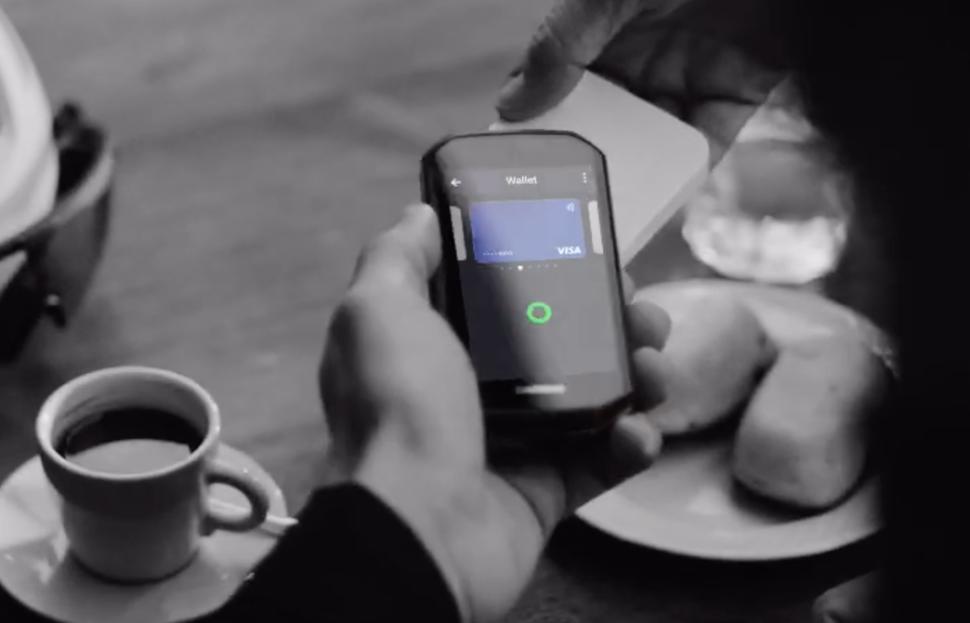
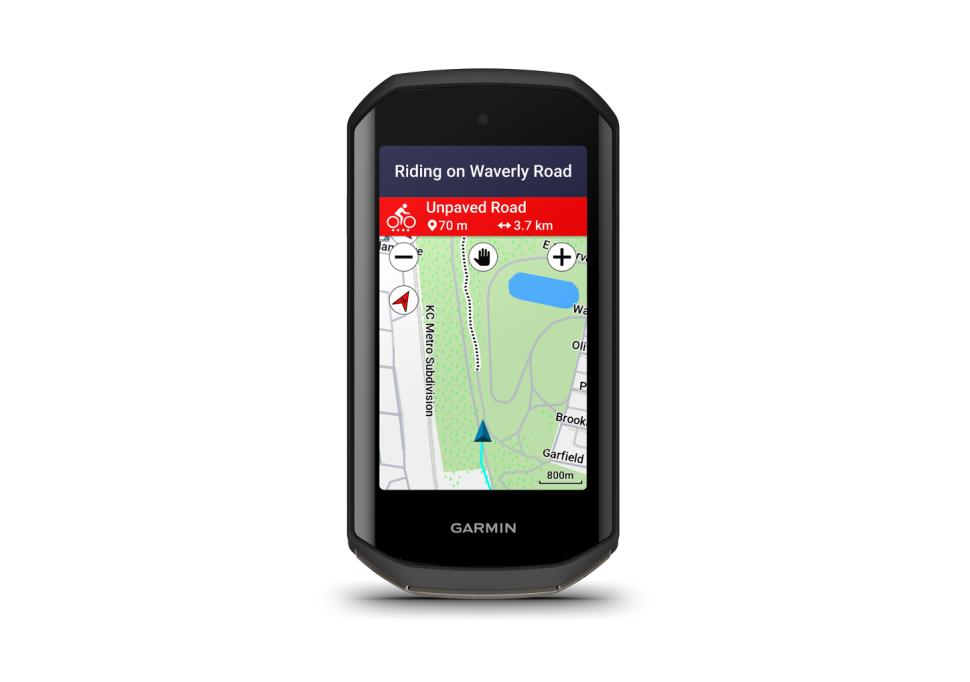
Add new comment
37 comments
Oooh! Thanks!
Just get a credit card from a bank that supports it.
I use Santander.
The pay function works flawlessly, noticeably better than Google pay on my phone.
So I choose a card provider or bank account because of what Garmin choose to support. Thats putting the cart before the horse thanks....
I suspect you have that backwards - it's about which banks choose to support Garmin Pay. The 'challenger' banks will do so as a point of difference, where the majors don't see it as worth the bother. It's not that Garmin Pay is 'crap' - it's just up against market inertia and incumbency effects.
If you have a Garmin anyway, which I do, then it's not a huge amount of hassle to add a very useful extra feature. Took me about 15 mins to apply for the Santander account.
There seems to be a few satisfied customers on this thread so maybe it's not so bad after all?
I too have a Santander credit card that I use purely for Garmin Pay on my watch. The monthly statements are vaguely amusing, being basically a list of cake stops.
That is pretty much my statement too!
It is slightly worrying how much I spend purely on coffee and cake though.
Pages